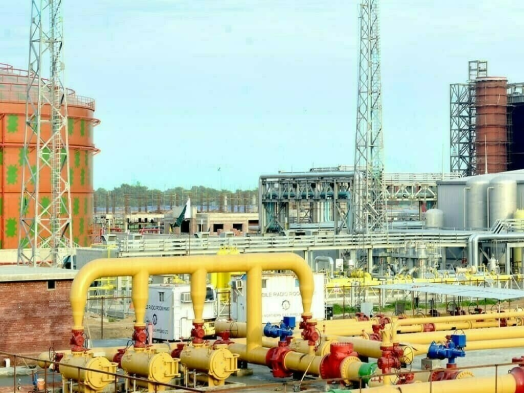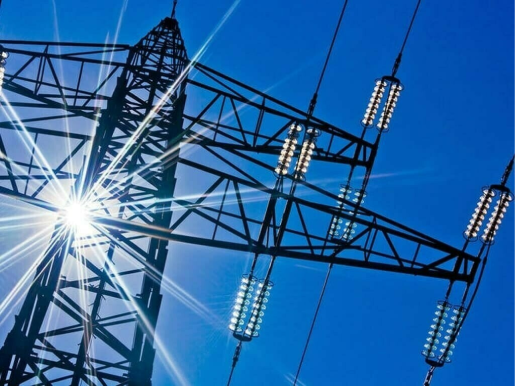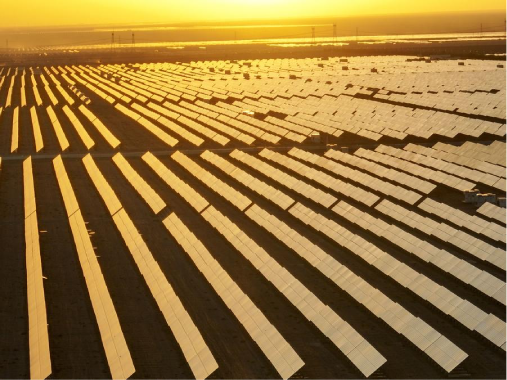Prime Minister Imran Khan Saturday said Pakistan was committed to mitigate impact of climate change and vowed to produce 60 per cent clean energy through renewable resources by the year 2030, scrap its coal based power projects, and run 30 percent of its vehicles on electricity.
I assure you that Pakistan will be doing its best to make its contribution to mitigate the effects of climate change,” Prime Minister Imran Khan told the Climate Ambition Summit to mark the fifth anniversary of the signing of the landmark Paris Agreement.
The Prime Minister in a recorded video speech aired at the summit said Pakistan’s contribution to global emissions were less than one percent, “yet and sadly, we are the fifth most vulnerable country to climate change.”
The Prime Minister who has won accolades globally for his ambitious tree plantation campaign said his government has decided to have nature-based solutions to mitigate the effects of climate change by planting 10 billion trees in the next three years. Khan said Pakistan increased the number of national parks and its protected areas, from 30 to 45. He said his government has also decided not to have any more power based on coal and has scarped two such projects that were supposed to generate 2600 MWs. He said these power projects have been replaced by hydroelectricity.
Referring to the country’s indigenous coal reserves he said “we have decided to produce energy either by coal to liquid or coal to gas, so that we do not have to burn coal to produce energy.”
He said all energy in Pakistan produced in Pakistan by year 2030 will be clean energy through renewables. The event was addressed by a number of world leaders as the United Nations warned that current commitments to tackle rises in global temperatures were inadequate. The UN, Britain and France co-hosted the online summit, with the organizers hoping to announce “new and ambitious climate change commitments.”
Apart Prime from Minister Khan co-convenors UN Secretary-General Antonio Guterres, UK Prime Minister Boris Johnson and French President Emmanuel Macron, as well as China’s President Xi Jinping, Italian Prime Minister of Giuseppe Conte , Chilean President Sebastian Pinera and Indian Prime Minister Narendra Modi will be speaking at the summit.
According to APP’s UN Correspondent, an official statement said the summit will highlight the fast-growing coalition of countries, cities, regions, businesses and investors committing to net-zero emissions and boosting ambition in climate finance, and resilience and adaptation. More than 110 countries have already committed to becoming carbon neutral by 2050. “The Summit is a major step on the road to the next UN Climate Conference, COP26, which will be hosted by the UK next November in Glasgow,” the statement said, adding that it will provide leaders with a global platform to showcase commitments to tackle climate change.
The Summit will also be giving a platform to business, sub-national governments and civil society, including youth, indigenous and faith-based climate champions. The Paris accord, adopted in 2015 and signed a year later, is designed to boost greenhouse-gas-emissions mitigation worldwide. Its main goals include keeping the global average temperature to well below 2 degrees Celsius (3.6 degrees Fahrenheit), and efforts to limit warming to 1.5 degrees in a bid to reduce the impact and risks of climate change.
The summit comes as European Union leaders on Friday committed to the goal of reducing emissions by 55 per cent by 2030 compared to 1990 levels.
The last five years have been the warmest on record, according to the World Meteorological Organization, a UN agency, with concern at rising numbers of wildfires, storms and flooding. The UN has said that the drop in emissions due to the global coronavirus pandemic is too small to halt the rising temperatures.
The United States, the world’s second-largest polluter after China, left the Paris Agreement under President Donald Trump who questioned the accepted science behind climate change.
Incoming US climate envoy John Kerry plans immediately to re-enter the accord and President-elect Joe Biden has set a goal of carbon neutrality by 2050. Mr. Chairperson, Pakistan is the country whose contribution to global emissions is less than one percent. Yet and sadly, we are the fifth most vulnerable country to climate change.
We have decided firstly that we will have nature based solutions to mitigate the effects of climate change by planting 10 billion trees in the next three years. Secondly, we have increased the number of national parks, protected areas, from 30 to 45. At the same time we have decided that we will not have any more power based on coal. We have already scrapped two coal power projects, which were suppose to produce 2600 MW of energy, and replaced them by hydroelectricity. As far as indigenous coal goes, we have decided to produce energy either by coal to liquid or coal to gas, so that we do not have to burn coal to produce energy.
At the same time we have also decided that by 2030, 60 percent of all energy produced in Pakistan will be clean energy through renewable.
And also 30 percent of all our vehicles would be on electricity. So I assure you that Pakistan will be doing its best to make its contribution to mitigate the effects of climate change.





